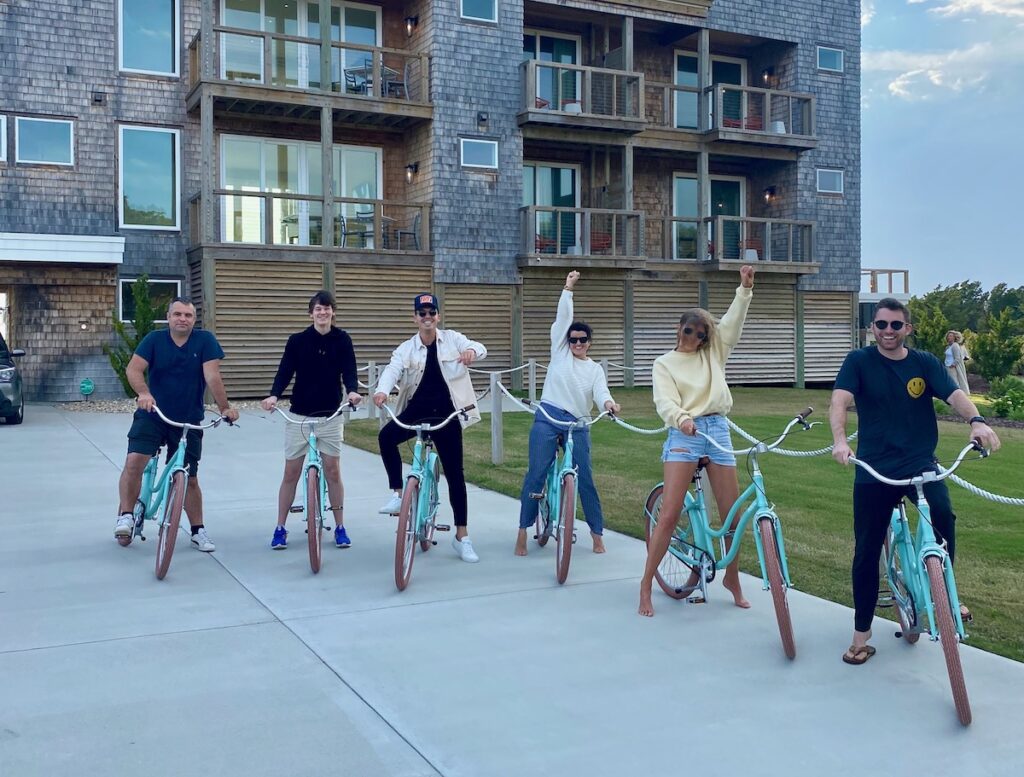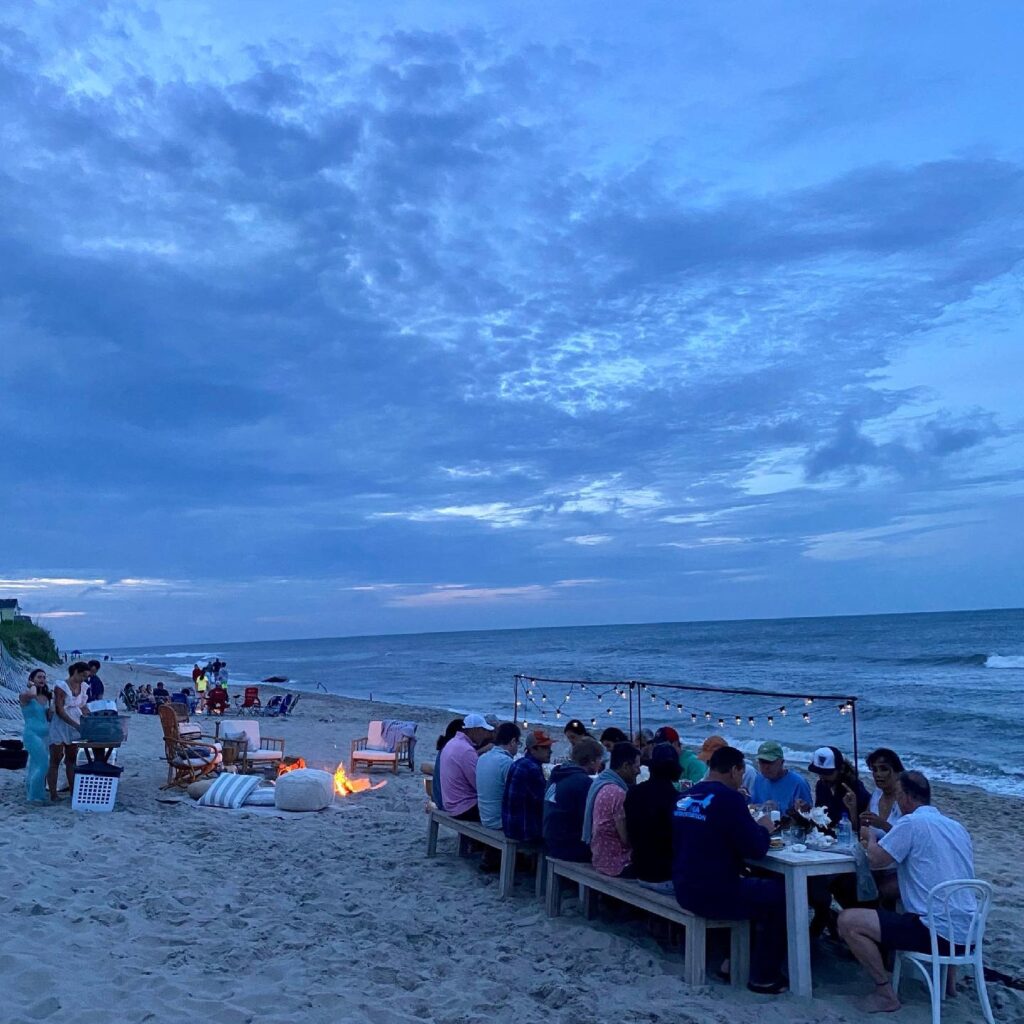Richard Fertig is the founder of Stomp Capital, which owns boutique hotels in Costa Rica, the Hamptons, and Palm Springs.
While investment firms are typically lean organizations of just a few people, Richard is building Stomp as an integrated investment, development, and operations firm to manage the experience end to end for his guests. That requires attracting a diverse group of talent. We spoke recently about how he has done this.

Creating (and sharing) a magnetic mission
The mission of what Richard is doing at Stomp Capital is central to his hiring strategy and has become a magnet for talent.
“The individuals on my team all said ‘I love what you’re doing’ and reached out. They are passionate and believe in our mission.”
The result is that the company has never had to place a job ad or use a recruiter. “People contact me and ask if we have space for them on the team. They tell us they want to leave careers that are all but certain and join the uncertainty of a startup because they love what we’re doing. It’s more exciting and makes them feel alive.”
Having a unique point of view and a mission that is magnetic helps, but Richard has also invested heavily in sharing his perspective of what hospitality could look like, which drives inbound interest.
“I credit a lot of the success we’ve had hiring to things like podcasts, Twitter, and my YouTube channel. We live in a world where stories win. They appeal to team members who want to join. They appeal to guests who want to visit our properties. And they appeal to LPs who want to invest in our fund.”
Inbound, “pull marketing” requires an investment of time and builds momentum with consistency, but pays dividends in many ways. “We’ve become a magnet for people who listen to what we’re sharing. They’re saying ‘I’ve got to try this. I want to do that. I want to work there. I want to invest in this.’”

Distributed workforce as a talent magnet
“I have a very different view than most,” Richard told me. “I’ve been working remotely and traveling extensively for the better part of a decade. If you look at what I’ve accomplished, it’s far more than if I sat in an office. I don’t see any reason why I would be more productive in an office or even leading a team from an office, which I used to do in the past in my hedge fund days.”
For Richard, it’s all about building an environment where people are passionate about what they’re building and in a peak state to build it.
“Stomp Capital hires talent. We don’t hire proximity. The person who spearheads our hospitality chooses to live in British Columbia. The person who spearheads our investor relations chooses to live in Manhattan. And we have people who live in Los Angeles, India, and Morocco. We’re spread all over the world, and consequently can get the best talent because we allow our team members to live by friends, family, loved ones, sports activities, views, food – or whatever else is important to them.”
The feedback has been overwhelmingly positive. “I keep hearing from people on my team that I can’t believe I get paid to do this. I’m learning more. I’m growing faster. I’m surrounded by amazing people. We’re creating these great experiences. Our team walked away from careers anyone would have killed for a few years ago and now can do work they love without being tethered to a desk in Midtown.”

Offsites as a catalyst for culture (and attracting talent)
To cultivate culture in this distributed environment, Stomp Capital relies heavily on off-sites.
“Once a quarter, we get together, and rotate between our properties so our entire team gets to not only be together but can speak to what it’s like to be a guest. No one can say they don’t know what our properties are like.”
Their first offsite was in Jackson Hole, Wyoming, where Richard is building a home. Then, they met in North Carolina’s Outer Banks. Then, at their hotel in the Hamptons. Their next trip will be to Nosara in Costa Rica.
“We just keep rotating and are able to experience our various projects, which are at various stages of development. And whether you’re involved in the development or the hospitality side of our business, you see, breathe, eat, learn, and live all the local stuff each destination provides.”
Immersion into experiences like these and connecting deeply is powerful.
“Five days of living together with your team is the equivalent of five years in the office. We’re up in the morning doing yoga, then on jet skis, then having a chef prepare breakfast, then have a working session, then a break and more working sessions.”
For Richard and his team, having everyone inspired produces their best work. “We feel like we’re superhuman. We’re getting so much more done. And my team keeps telling me they can’t believe they’re getting paid to do this!”
Learning from all voices: how Richard runs meetings
Whether in person or meeting virtually, Richard uses something he learned during his hedge fund days.
“When any decision is on the table, the most junior person speaks first, and I’m the last person to speak. If I say, ‘I think it’s white,’ then chances are everyone around the table is like, ‘Yeah, I think it’s white’ as well. Or maybe they say, ‘Richard I don’t know, it’s grayish.’ But no one’s going to come right out and say ‘No dude, it’s black.’ And so in order to foster that community feeling and everybody having ownership and decision-making opportunities, we start with the most junior person speaking first and I think that that works incredibly well.”
Creating space for people to do their best work
For Richard, a high-performing team is all about attracting the right people – and then freeing them up to do their best work. And that means not micromanaging.
“I give them the bandwidth to really express themselves and to explore. I provide a safety net so that they know there’s no career risk.” The result? “We’ve had incredible decisions made by very junior people who’ve never had this kind of voice or opportunity before.”
This is what provides Richard with meaning as a leader.
“My goal and desire is to mentor and to grow these individuals. They’re all so qualified they could go do a million different things. But the culture we’re creating here is what motivates them to stay and keep building with us.”
—
Follow Richard Fertig on Twitter or LinkedIn – or learn more about Stomp Capital here.









